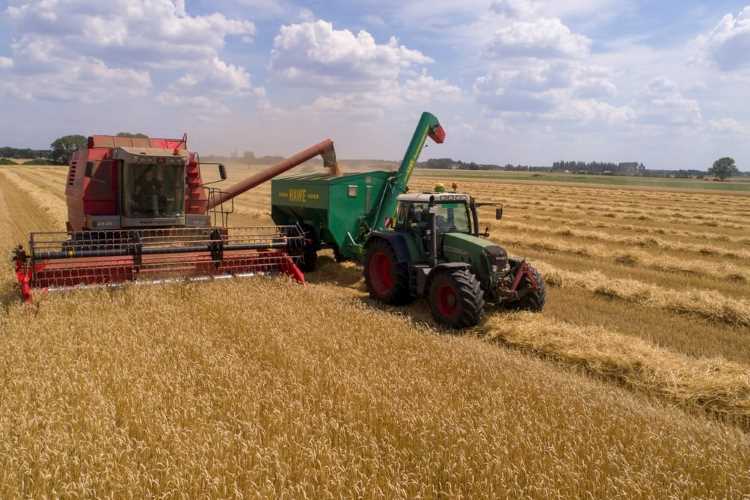
By A Amarender Reddy
FPOs is the way forward: The country is facing an unprecedented farm crisis. One of the reasons for the agrarian distress is inadequate access to agricultural inputs and markets for small and marginal farmers. The states where farmer collectives are in operation have succeeded in improving the lot of small farmers. Farmer producer organisations never had it so good. There is a congenial operational environment created by the central scheme ‘Formation and Promotion of 10,000 FPOs’, liberal model market laws enacted by several state governments and the proposed new farm laws. FPOs can be formed as cooperatives or as farmer producer companies (FPCs).
History of cooperative FPOs is far from satisfactory, though there are some success stories in Maharashtra and Gujarat. Most of the states enacted their own cooperative acts in early 1960s and 1970s and encouraged the formation of cooperatives. But most of them ended up with huge losses. The earlier cooperatives formed under the cooperative society acts are tightly regulated by cooperative registrar and influenced by local politics.
To remove tight regulation, many state governments passed new cooperative laws with a liberal framework. The Andhra Pradesh government under NT Rama Rao enacted the liberal Mutually Aided Cooperative Societies Act in 1995, followed by nine other states. However, the states with liberal acts did not have strong cooperatives compared with states like Maharashtra and Gujarat. The Multi State Co-Operative Societies Act, 1984 enacted by Parliament aimed at removing geographical boundaries for cooperatives, but it was not successful in encouraging the formation of large cooperatives.
READ I Farmers protest: Is contract farming a bad thing for farmers?
FPOs as farmer producer companies
Following the failure of reformed cooperative acts, the Companies (Amendment) Act 2003 was enacted, based on the recommendations of the YK Alagh committee, to allow the registration of farmer producer companies. This law liberated the farmer collectives from the arduous process of working under the Registrar of Cooperatives and gave more autonomy under the Companies’ Act. This allowed farmer producer companies to employ professional management with no bureaucratic control and political intervention.
FPCs also have more financial freedom to expand their activities across the country. FPCs have to follow the basic cooperative principles such as voluntary and open membership, equal voting rights independent of shareholding and an elected board from among members. Further, FPC Act incentivise member farmers to be active members by linking the distribution of surplus with members’ activities at the FPO.
READ I MSP guarantee key to ending exploitation of farmers
A business strategy for FPOs
Even after these institutional changes, the progress is subdued in terms of scale of operations, because of the restrictive macro-business environment in the country. However, with the liberalisation of agricultural markets, enactment of model market acts by state government and direct markets, most of the restrictions on market operations have been lifted, creating a congenial business environment. The FPOs can cash in on the favourable atmosphere to increase their scale and scope of operations, turnover and profitability.
Experience shows that whenever FPOs work with large number of active farmers for a reasonably long period, they are bound to be successful. For example, farmers share in consumer rupee has increased in most of the dairy cooperative to the extent of 75-80%, while it is just 25-30% in case of fruits and vegetables, although both are perishables items and have similar supply chains.
READ I Election manifestoes: An 18-point agenda to make India great
FPOs need sound strategy, good leadership
Member-controlled dairy cooperatives in western India have demonstrated how farmers’ incomes can be enhanced with farmers collectives. The success of FPOs requires a mix of good leadership, member participation, a sound business plan with value-added products and a business-friendly environment to generate sustained profits.
A mere change in the institutional framework alone will not help FPOs in the absence of a proper business plan. Large FPOs like Amul or Bardoli Sugar Cooperative are bult on successful business models and their effective implementation by a professional management. Experience shows that very few FPOs are successful in terms of business expansion. Although government incentives may help in increasing the number of FPOs, their actual success depends on an active membership, business volumes, differentiated market and products, and value-addition.
To make FPOs successful, their business model should evolve around increasing scale, cost reduction, value addition and market diversification. They should use modern technology to link farmers to markets to create value to the consumer, thereby increasing sale prices and farmers’ incomes. Studies show that a viable FPO requires a minimum turnover of about Rs 5 crore and a net profit of about Rs 30-50 lakh per annum on a sustained basis.
There are some successful examples like KisanKannect, an FPO in Maharashtra with a business turnover of Rs 6.5 crore, that sells fresh fruits and vegetables to Mumbai consumers. Sahaja Aaharam and Mulkanoor Cooperative Society are some other examples.
India has 5,000 to 7,500 FPOs as per different estimates and a majority of them are farmer producer companies. Budget 2019 had announced a five-year tax exemption for FPOs while Budget 2020 talked about setting up 10,000 more FPOs in the next five years. To be successful in the long run, farmers organisations need to have effective business models, high turnovers, sustainable cash flow to meet working expenses, value-added products, bulk institutional sales and enhancing branded retail sales.
(Dr A Amarender Reddy is Principal Scientist (Agricultural Economics), ICAR-Central Research Institute for Dryland Agriculture, Hyderabad.)
